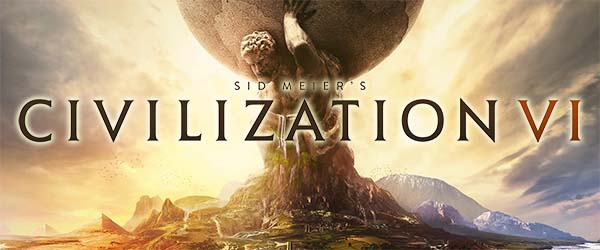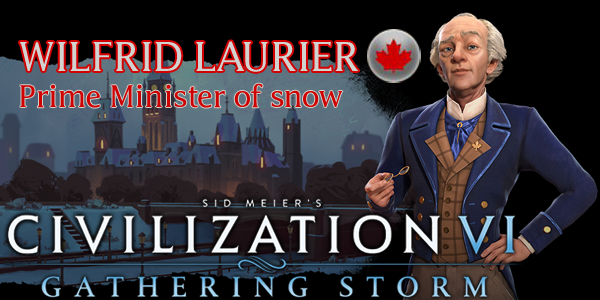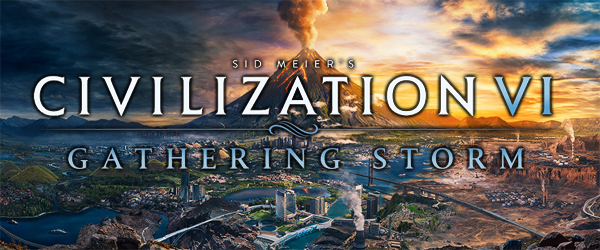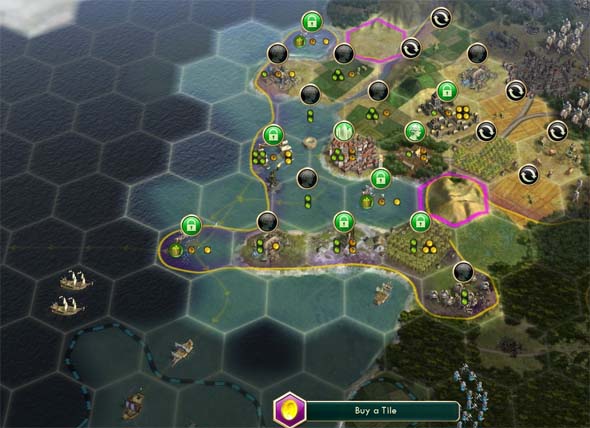
This will be the second part of a 2-part Retrospective on Civilization VI. The first part features my personal list of Top 10 Good Ideas that Firaxis put into the game, and this second part will be the Top 10 Bad Ideas. If you haven't read the Good Ideas yet, then I highly recommend you check that out first, as there will be several topics in this list that will build on what was said in the previous list. In fact, there will be some topics that are appearing in both lists, so I hope you'll read the good things that I have to say before reading the bad.
I also don't want to be a complete downer, and would like to provide constructive feedback. So wherever possible, I will try to make suggestions on how I think Firaxis could improve on some of these ideas if they chose to revisit them for future games. And some of these ideas are certainly worth re-visiting.
This content is also available in video essay format via YouTube.
[More]
07ea0b45-5d98-4ac1-9e2c-064bddd336aa|1|5.0
Tags:Civilization VI, Civilization VI: Rise and Fall, Civilization VI: Gathering Storm, Civilization VI: New Frontiers Pass, Sid Meier's Civilization, retrospective, top 10, privateer, pirate, world congress, agenda, leader, museum, trade route, wall, diplomacy, disaster, climate change

Civilization VI's second expansion, Gathering Storm recently released and has added a handful of new civilizations and leaders. I am hoping to write a strategy for each of them, but I want to start with the civilizations and leaders who are completely new to the franchise.
One of these new civs represents a sort-of "farewell" present to the founder and former lead-host of the PolyCast podcast, Dan Q, who stepped down from the podcast at the end of 2018 in order to spend more time with his new family. However, he'll still be playing Civ, and for the first time in the franchise's history, Dan gets to play as his home and native land of Canada. It's too bad he's not on PolyCast anymore to tell us about how great Wilfrid Laurier of Canada is, eh?

On a more serious note: thank you, Dan for over a decade of faithful service and dedication to the Civilization community. And on a more personal note, thank you for inviting me to join the regular panel on PolyCast. You gave me a voice within this community that I did not think I would ever be able to reach. We'll miss you, Dan, and we hope to talk to you again as a guest host many times in the future. Best wishes to you and your new wife in your new life together. May your lives together be forever in a Golden Age!
This guide is dedicated to you, Dan. Now let's talk about Canada in Civilization VI!

The first European colony in North America is widely accepted to be a Norse encampment in Newfoundland, which was abandoned within a few years of settlement. It wasn't until the 16th century that large-scale colonization began -- mostly by French and British colonists. In 1763, France ceded most of its North American colonies to the British following years of on-again-off-again warfare. The Confederation of Canada was formed over a hundred years later, but remained loyal to the British crown until the Canada Act of 1982. Despite being a formally independent nation, Canada still maintains the British monarch (currently Queen Elizabeth II) as its official head of state. Because many of the founding cities were French colonies, Canada is an officially bilingual country, with both English and French being its official languages, and it is now one of the most multi-cultural nations in the world due to frequent large-scale immigration from other parts of the world. Canadian interactions with indigenous peoples were generally less violent than with neighboring United States' interactions with natives. However, the expansion of Canadian territory still required the forced relocation or assimilation of somewhere between 200,000 and 2 million indigenous peoples, including the Inuit, Métis, the Cree, and several dozen other tribes.
Canada's first French-speaking prime minister was Sir Henri Charles Wilfrid Laurier. Laurier was part of Canada's Liberal party, advocating for decentralized federalism and staunchly defending individual personal liberty. Despite wishing for Canada to remain an autonomous nation loyal to the British Empire, he would go on to oppose British conscription of Canadian citizens in World War I, which would become a polarizing issue in the early 20th century. He gained a reputation as a bright and cheerful leader who always followed the "sunny ways", and has become one of the most beloved prime minsters in Canadian history.
DISCLAIMER:
Civilization VI is still a "living game". Strategies for the game (and for specific leaders and civs) may change as Firaxis applies balance patches, introduces new features, or expands the game through further DLC or expansion packs, or as the Civ community discovers new strategies or exploits. As such, the following strategy guide may change from time to time. I will try to keep it up-to-date, and will make notations whenever changes are made. I'll also post links in the official 2K forums and CivFanatics, where I'll also report any changes made. If possible and practical, I will try to retain the original content of the strategy for posterity.
I welcome any feedback or suggestions that readers wish to offer. Feel free to post on the linked forums, or by posting a comment at the bottom of the page.
This guide is up to date as of the release of the Gathering Storm expansion (ver. 1.0.0.290)
Canda is a prime contender for a turtle strategy, as it cannot surprise declare on other civs, or be surprise declared on. They also specialize in settling in otherwise-inhospitable tundra.
... [More]
504f5955-2cb6-4f67-90d0-584dee7a227e|0|.0
Tags:Sid Meier's Civilization, Civilization VI, Civilization VI: Gathering Storm, Canada, Wilfrid Laurier, four faces of peace, the last best west, tundra, hockey, hockey rink, farm, mountie, national park, tourism, culture, world congress, diplomatic favor, unique improvement, unique mounted unit

This past weekend, I put up my review of Gathering Storm, the new expansion for Civilization VI. The overall summary is that I felt very "meh" about the game's headline features, but was actually impressed by how the smaller, more subtle changes really improve the underlying game. That review focused on a lot of the high-level concepts of the game, and was already starting to get rather long (my readers all know how verbose I can be). I decided to cut a lot of my smaller criticisms of individual mechanics or functionality out of that review, and save them for their own separate post.
So now that you all know how I feel about the expansion overall, here's some of my smaller nags and nitpicks (and suggestions for resolving them) that I hope can be resolved by some post-release patches.
Table of contents
Civs who don't pollute should gain Diplomatic Favor
[More]
648e5396-2c29-4d24-8cbc-3a47e3e48539|1|5.0
Tags:Sid Meier's Civilization, Civilization VI, Civilization VI: Gathering Storm, weather, disaster, flood, world congress, diplomatic favor, strategic resource, oil, iron, coal, user interface

It's refreshing to see a video game (of all things) take seriously the second greatest existential threat to civilization (after nuclear weapon stockpiles), while governments (particularly here in the United States) fail to even acknowledge that it's real. I was honestly a little bit surprised to see anthropogenic climate change be the focus of an entire expansion to Firaxis' Sid Meier's Civilization VI. Firaxis has been playing very "politically correct" with the game in its past two iterations. Civ IV, if you remember, included slavery as a mechanic that allowed players to kill population in exchange for a production boost, and it included leaders like Joseph Stalin and Mao Zadong. Civilization III allowed collateral damage from city sieges that would kill population, destroy infrastructure, and potentially reduce wonders of the world to mere ruins. Civilization II allowed democratic congresses to overrule the choices of the player. And Civilization: Colonization actually required you to draft citizens from your cities into soldiers to fight wars.
Politically sensitive concepts like slavery, and characters like Joseph Stalin, have been in Civ games before,
but Civ V and VI have played things very safe and controversy-free with most of their content.
Civilization V and VI have dialed back from such concepts and leaders, as well as other "politically sensitive" topics in favor of diversity, inclusiveness, and a more rose-tinted vision of human history that tries to pretend that things like slavery, colonialism, opium wars, and the Holocaust didn't happen. I get it. They're going for a more optimistic vision of humanity that celebrates our achievements while overlooking the incalculable amount of [often unnecessary] suffering that came at the expense of many of those achievements.
So to see Anthropogenic Global Warming not only be included -- but to be the headline feature -- is surprising. I mean, I don't think it's a politically or culturally sensitive topic, nor should it be to anyone else if we lived in a rational world. It's the reality that we live in -- plain and simple. Nevertheless, it's a brave and important gesture from 2k and Firaxis. Anthropogenic climate change is certainly the second greatest threat to human civilization after our frightful stockpile of nuclear weapons -- or maybe an asteroid impact, but that is exceedingly unlikely to happen. It's an issue that needs to be a part of the cultural conversation, and it is perhaps the biggest price that we (as a civilization) are going to pay for the hubris of our unsustainable growth. It's a problem that every nation in the world needs to face, and solving that problem should be part of any game that attempts to simulate or systematize modern politics.
Anthropogenic climate change is one of the most serious problems threatening real-life civilization.
That is why I'm rather disappointed that the actual implementation of global warming in Civilization VI: Gathering Storm is a bit lackluster and un-apocalyptic.
The greatest existential threat to civilization is civilization
Climate change in Civilization VI: Gathering Storm just doesn't seem to be quite as devastating [globally] as it is in real life. Basically, raising the global temperature will have three effects.
- Increases the frequency of weather-related disasters,
- Melts polar ice caps,
- Floods certain coastal tiles.
Many disasters are trivially managed by leaving a builder or two (with 1 charge) to repair pillaged tiles.
The melting of the polar ice is actually a benefit, as it provides easier routes for naval units if canals aren't available or useable. The other two will cause problems for every player, but I've found them fairly easy to manage (at least on the Emperor difficulty that I usually play on). Disasters will typically pillage tile improvements and districts, but a severe disaster may also outright remove improvements, and may even kill points of population.
... [More]
4b253bea-180f-4b51-bee0-8ae99652603e|0|.0
Tags:Sid Meier's Civilization, Civilization VI, Civilization VI: Gathering Storm, weather, disaster, pollution, carbon dioxide, greenhouse gas, fossil fuel, climate change, global warming, flood, volcano, world congress, diplomatic favor, strategic resource, aqueduct, encampment, skirmisher, courser, cuirassier, pikeman

One of my biggest criticisms with the Gods & Kings expansion pack for Civilization V was that none of the features added really felt all that fresh. They were just redesigns of old features that were present in previous games. Granted, they were also the most highly-requested features by the player community, but as concepts, nothing really felt new or original.
The new expansion, Brave New World changes all of that by adding never-before-seen concepts to the game, and they add a great deal of flavor and dramatically change the way that the game unfolds.
Table of Contents
A few more of the missing concepts from Civilization IV are re-introduced with a new coat of paint in Civilization V: Brave New World: trade routes and a world resolution system. Both systems are implemented differently than in the previous game, and both are kind of hit-or-miss this time around
I have long been asking for the introduction of some kind of international trade route mechanic to be added to Civ V. Without such a feature, the vanilla game (and Gods & Kings) were missing one of the key incentives to maintain peaceful relations with your neighbors. Well now we have such a feature. In some ways, it's a step forward from Civ IV's completely non-interactive trade routes, but it's also a bit clumsy.

Coastal cities might seem weaker due to the lack of gold on sea resources, but sea trade routes are more profitable and have longer range than ground routes, so coastal cities are still valuable.
[More]
003f33b0-d930-43c5-8b65-1d2ae950b00a|2|5.0
Tags:Civilization V: Brave New World, Civilization V, Sid Meier's Civilization, Civilization, Firaxis, 2K Games, expansion, PC, Steam, strategy, grand strategy, turn-based strategy, tactics, trade, trade route, archaeology, literature, art, music, culture, United Nations, UN, world congress, gold, William Morgan Sheppard, Civilization IV, Civilization V
|

| 12 | | | | | | | 60 | | 11 | | | | | | | 55 | | 10 | | | | | | | 50 | | 09 | | | | | | | 45 | | 08 | | | | | | | 40 | | 07 | | | | | | | 35 | | 06 | | | | | | | 30 | | 05 | | | | | | | 25 | | 04 | | | | | | | 20 | | 03 | | | | | | | 15 | | 02 | | | | | | | 10 | | 01 | | | | | | | 05 |
|